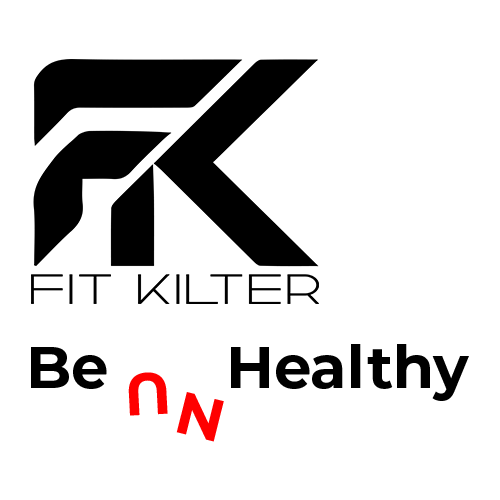The GM Diet, officially known as the General Motors Diet, is a widely recognized, albeit controversial, seven-day diet plan that claims to facilitate rapid weight loss. Originating in the 1980s, this diet was originally intended for General Motors employees to improve their overall health and fitness. Since then, it has gained popularity as a short-term weight loss solution. In this comprehensive guide, we will explore the principles, potential benefits, and drawbacks of the GM Diet.
How Does the GM Diet Work?
The GM Diet follows a strict and structured regimen that spans seven days. Each day of the plan focuses on specific food groups or types, with the calorie intake varying throughout the week. Here’s a detailed breakdown of the GM Diet:
Day 1: Fruit Day
- On the first day, you’re allowed to consume an unlimited amount of fruits, except for bananas.
- It’s important to stay well-hydrated with water, herbal teas, and black coffee (without sugar).
Day 2: Vegetable Day
- Day 2 is dedicated to a variety of fresh or cooked vegetables. You can consume them raw or as a salad.
- You can start your day with a baked potato for breakfast.
- As on Day 1, hydration remains crucial.
Day 3: Fruits and Vegetables
- Combine the foods allowed on Days 1 and 2, except for bananas and potatoes.
- Maintain adequate hydration as before.
Day 4: Bananas and Milk
- Day 4 focuses on consuming up to eight bananas and three glasses of milk (skim or low-fat).
- This combination provides potassium and calcium to prevent cravings and fatigue.
- Ensure you continue drinking water throughout the day.
Day 5: Protein Day
- Incorporate lean protein sources like chicken, beef, or fish.
- Additionally, include six whole tomatoes.
- Maintain your hydration routine.
Day 6: Protein and Vegetables
- Combine lean protein sources and vegetables from Day 5.
- Continue to stay well-hydrated.
Day 7: Rice, Vegetables, and Fruit Juice
- The final day allows for brown rice, a variety of vegetables, and fruit juice.
- As with previous days, keep yourself hydrated.
Can I Make Substitutions in the GM Diet?
The General Motors (GM) diet is a highly restrictive diet plan with specific food recommendations for each day. While some variations of the GM diet allow for limited substitutions, it’s essential to understand that making substitutions can impact the effectiveness and outcome of the diet.
Here are some general guidelines regarding substitutions in the GM diet:
- Limited Substitutions: Some versions of the GM diet allow for minor substitutions, primarily to accommodate dietary preferences or restrictions. However, these substitutions are typically limited and should not deviate significantly from the original plan.
- Substituting Fruits: In some cases, you can substitute one type of fruit for another on fruit days. For example, if you don’t like or have access to watermelon, you might choose to eat another fruit like cantaloupe, strawberries, or apples.
- Substituting Vegetables: On vegetable days, you can often switch one type of vegetable for another. For example, if you dislike or are allergic to tomatoes, you could replace them with other non-starchy vegetables like cucumbers, zucchini, or spinach.
- Dietary Restrictions: If you have dietary restrictions, such as vegetarian or vegan preferences, you can choose plant-based protein sources like tofu, tempeh, or legumes on protein days. However, be mindful of portion sizes and the overall calorie content.
- Hydration: While water is the primary beverage on the GM diet, you can substitute herbal teas or black coffee without sugar for plain water if you prefer. However, avoid adding calorie-containing beverages or sweeteners.
- Avoid Major Deviations: It’s crucial to avoid major substitutions or deviations from the GM diet plan, as this can alter the calorie intake and nutrient balance, potentially affecting the diet’s intended results.
- Consultation with a Professional: If you have specific dietary requirements or medical conditions, consult with a healthcare provider or registered dietitian before making any substitutions or attempting the GM diet. They can provide guidance tailored to your needs and ensure that any changes you make align with your health goals.
Keep in mind that the GM diet is a highly restrictive and short-term diet plan that may not be suitable for everyone. While it may lead to rapid weight loss for some individuals, its effectiveness is debated, and it may not promote long-term, sustainable weight management. Additionally, the GM diet lacks essential nutrients, so it should be followed with caution and for no more than seven days.
Is the GM Diet Effective for Weight Loss?
The General Motors (GM) diet is a seven-day, restrictive diet plan that claims to facilitate rapid weight loss. However, its effectiveness and safety are subjects of debate among health experts and nutritionists.
Here are some key points to consider regarding the GM diet’s effectiveness for weight loss:
Pros:
- Short-Term Weight Loss: Some individuals may experience significant weight loss over the seven days of the GM diet due to the calorie restriction and low carbohydrate intake. This can be motivating for those looking to jump-start their weight loss journey.
- Structured Plan: The GM diet provides a structured meal plan, making it easy for participants to follow without having to calculate calories or macronutrients.
Cons:
- Lack of Scientific Support: The GM diet is not based on scientific principles or supported by credible scientific research. It was allegedly developed by General Motors for its employees but lacks scientific validation.
- Nutritional Imbalance: The diet is highly restrictive and lacks essential nutrients. It primarily consists of fruits, vegetables, and some protein sources, leaving out important food groups like grains, dairy, and healthy fats. This can lead to nutritional deficiencies and imbalances.
- Short-Term Results: The weight loss achieved during the GM diet is often short-term and may consist of water weight loss and muscle loss rather than fat loss. Once regular eating patterns are resumed, weight may be regained.
- Lack of Sustained Results: The GM diet does not teach participants sustainable, long-term healthy eating habits. It focuses on rapid weight loss rather than developing a balanced, lifelong approach to nutrition and fitness.
- Potential Health Risks: The extreme calorie restriction and dietary limitations of the GM diet can be detrimental to health. It may lead to fatigue, dizziness, weakness, and other adverse effects.
- Not Suitable for Everyone: The GM diet may not be suitable for individuals with certain medical conditions, such as diabetes, heart disease, or gastrointestinal disorders. It can be particularly risky for those on medication or with specific dietary requirements.

Benefits of the GM Diet:
- Rapid Weight Loss: The GM Diet is known for its potential to induce significant weight loss in just one week. This is primarily due to its low-calorie nature and diuretic effect, which can lead to a reduction in water weight.
- Short-Term Commitment: It’s a short-term diet plan, making it accessible for those seeking quick results without the need for a long-term commitment.
- Variety of Foods: Despite its restrictions, the GM Diet incorporates a variety of foods, including fruits, vegetables, and lean proteins, offering some level of diversity during the week.
- Detoxification: The emphasis on fruits and vegetables in the GM Diet can help detoxify the body, potentially improving digestion and overall well-being.
Potential Drawbacks:
- Nutrient Imbalance: The GM Diet lacks essential nutrients, particularly fats and certain vitamins and minerals. Following it for an extended period may lead to nutrient deficiencies and health concerns.
- Temporary Results: The weight loss experienced during the GM Diet is often short-lived and may consist primarily of water weight. Sustained, long-term weight loss requires a more comprehensive approach.
- Hunger and Fatigue: Due to its low-calorie nature, some individuals may experience hunger, fatigue, irritability, and difficulties in maintaining energy levels.
- Lack of Scientific Backing: The GM Diet lacks substantial scientific evidence to support its effectiveness in achieving lasting weight loss or improving overall health.
Is the GM Diet Backed by Scientific Research?
The GM Diet, or General Motors Diet, is a diet plan that gained popularity for its claim of rapid weight loss in just seven days. However, it’s essential to note that the GM Diet lacks substantial scientific research and empirical evidence to support its effectiveness in achieving long-term weight loss or improving overall health. The diet’s origins are not rooted in scientific or medical research but rather in a marketing campaign attributed to General Motors in the 1980s. The dietary principles and food combinations it prescribes have not been systematically studied for their long-term health effects. For sustainable and evidence-based weight loss and improved health, healthcare professionals and registered dietitians typically recommend balanced and varied diets that meet individual nutritional needs, combined with regular physical activity and a focus on long-term lifestyle changes.
What to Eat After Completing the GM Diet?
After completing the GM Diet, it’s essential to transition back to a regular eating pattern gradually and thoughtfully to maintain any weight loss and ensure you meet your nutritional needs. Here are some general guidelines for what to eat after finishing the GM Diet:
- Introduce Foods Gradually: Begin by reintroducing foods slowly and in moderation. Your digestive system may need time to adjust to different foods again.
- Emphasize a Balanced Diet: Shift towards a well-rounded and balanced diet that includes lean proteins, whole grains, healthy fats, fruits, vegetables, and dairy or dairy alternatives.
- Hydration: Continue to prioritize hydration by drinking plenty of water throughout the day. Hydration is crucial for overall health and can help control appetite.
- Portion Control: Pay attention to portion sizes to avoid overeating. Be mindful of portion control, especially if you’ve been following strict portion guidelines during the GM Diet.
- Healthy Snacking: Incorporate healthy snacks like nuts, yogurt, or fruits between meals to help maintain energy levels and prevent overindulgence during main meals.
- Avoid Overly Processed Foods: Try to limit your consumption of highly processed foods, sugary snacks, and excessive amounts of salt. Focus on whole, natural foods.
- Meal Planning: Plan your meals ahead of time to ensure a balanced intake of nutrients. Include a variety of foods to meet your dietary needs.
- Regular Exercise: If you weren’t exercising during the GM Diet, gradually reintroduce physical activity into your routine. Exercise is essential for overall health and weight maintenance.
- Consult a Professional: Consider consulting with a registered dietitian or healthcare professional for personalized guidance on post-GM Diet eating, especially if you have specific dietary restrictions or health goals.
Remember that the GM Diet is a short-term, highly restrictive plan, and any rapid weight loss experienced during it may primarily consist of water weight. To achieve long-term health and sustainable weight management, it’s advisable to focus on adopting a balanced and varied diet, regular physical activity, and healthy lifestyle habits.
Can I Exercise While on the GM Diet?
Exercise can be a part of your routine while following the GM Diet, but it’s important to approach it with caution. The GM Diet is a low-calorie diet plan, and engaging in intense or strenuous exercise during this period may lead to fatigue, weakness, and dizziness due to the reduced calorie intake. If you choose to exercise, opt for moderate-intensity activities like brisk walking, yoga, or gentle stretching exercises. These activities can help you stay active and maintain muscle tone without placing excessive strain on your body. Listen to your body’s cues, and if you experience extreme fatigue or discomfort, it’s advisable to reduce the intensity or duration of your workouts. Remember that proper hydration is crucial when combining exercise with a low-calorie diet like the GM Diet to prevent dehydration and support your energy levels. Always consult with a healthcare professional or fitness expert before beginning any exercise routine, especially during a dietary plan like the GM Diet.

Are There Any Alternatives to the GM Diet?
Yes, there are alternative approaches to weight loss and overall health that are more sustainable and offer long-term benefits compared to the GM Diet. Instead of following highly restrictive and short-term diets, many experts recommend adopting a balanced and varied diet that includes a wide range of foods from different food groups. A balanced diet emphasizes fruits, vegetables, lean proteins, whole grains, and healthy fats, providing essential nutrients while promoting gradual and sustainable weight loss. Pairing a balanced diet with regular physical activity can further enhance weight management and overall well-being. Consulting with a registered dietitian or healthcare professional can help you create a personalized and effective weight loss plan tailored to your individual needs and goals, while also considering your long-term health.













